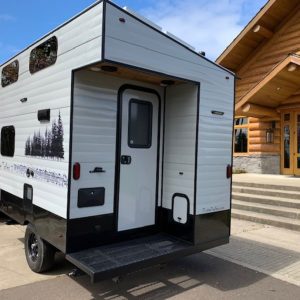RVing is one of those terms which covers a myriad of activities and, as such, can be a bit confusing for those not familiar with the very popular RV lifestyle. For those of you who are among that group of confused people, who would like to know a bit more about RV life, this article is for you.
What is RVing?
The most basic of definitions is this: RVing is living, part-time or full-time, in a recreational vehicle. The reason for the RV lifestyle, whether is be out of necessity, or a matter of lifestyle choice, or simply a weekend vacationer, is unimportant, although the majority of RVing is of the recreation variety.
Types of RVs
Although RV stands for “recreational vehicle,” not all RVs are vehicles, at least not in the most common understanding of the term. To most people, an RV can be a ten-foot tent trailer just as well as a 30-foot Class A motorhome.
A short, but most likely incomplete, list of RVs would include the following:
- Tent trailers
- Travel trailers
- Class A motorhomes
- Class B motorhomes
- Class C motorhomes
- Truck campers
- 5th wheels
- And an ever-increasing list of hybrid travel-trailers
The difference between Class A, Class B, and Class C motorhomes has to do with the chassis they are built on. A Class motorhome is built upon a bus or heavy truck chassis. A Class B is basically a retrofitted van chassis, and a Class C is built upon a smaller truck chassis.
Cost of RVing
There is no way to nail down the cost of RV travel, so if you are looking for “one answer fits all,” you will be sorely disappointed. One can buy a used tent trailer for $500, or a new one for a couple-thousand tops. A new Class A, new Class B, or new Class C can easily cost you $100,000 or more; used in those categories can run from a couple-thousand on up.
Travel trailers range from usually thirteen feet in length on up to thirty feet or more, and new can cost anywhere from twenty-thousand dollars to one-hundred grand. There are much better deals to be had for used travel trailers, but as always, buying used comes with its risks.
Truck campers are also all over the price map, as are 5th wheelers.
Once you buy your RV, the cost of actually camping in them on an RV trip will depend upon your lifestyle. The same can be said about buying accessories for your RV. You can spend very little, or you can spend an exorbitant amount; it is completely up to you, the RVer.
Is RVing for you?
There is only one way to find out the answer to this question, and that is to try it. Thankfully, it is possible these days to rent an RV so you can find out if you enjoy that type of vacationing/lifestyle. Rental fees usually run a couple-hundred dollars per night, plus gasoline if you rent an actual vehicle, but it’s as good a way as any to find out if you actually enjoy living in an RV for a short period of time.
And, if you’re lucky, you have a relative who owns an RV and is willing to loan it to you for a weekend.
Start out small and find out
Our suggestion, if you are interested in the RV lifestyle, is to start small, buying whatever you can currently afford. That way you are not investing too much money on an unknown. If you find out you like it, and you want something larger, that is always possible down the road. Used RV’s are selling for high prices these days, so recouping your original investment, should you decide to trade up, or even if you decide RV life is not for you, will not be a problem.
Bottom line: RVing is very, very popular here in the U.S., and if you haven’t tried it yet, you might be in for a wonderful surprise. It just might improve your quality of life, as we hope it does for us.
